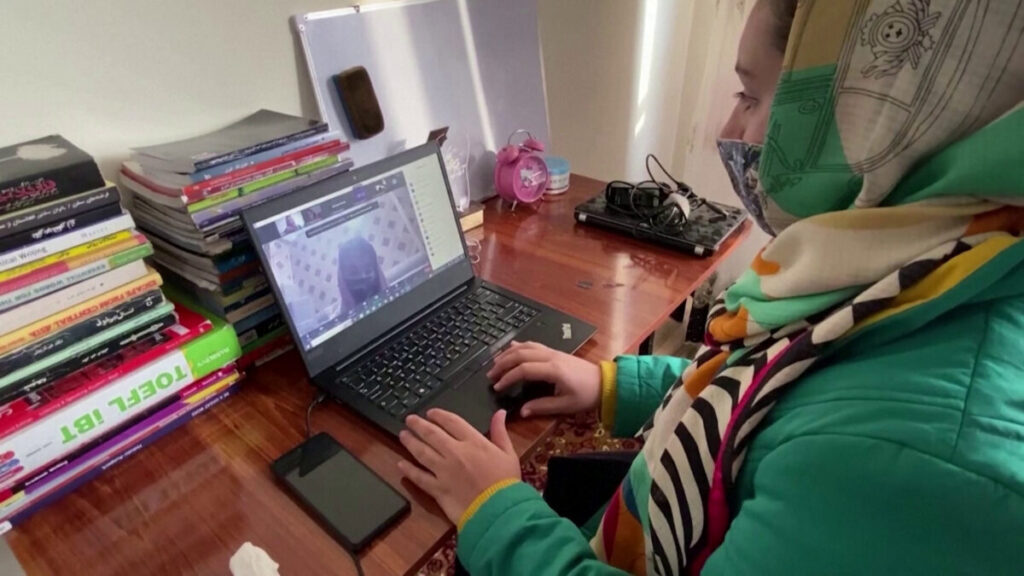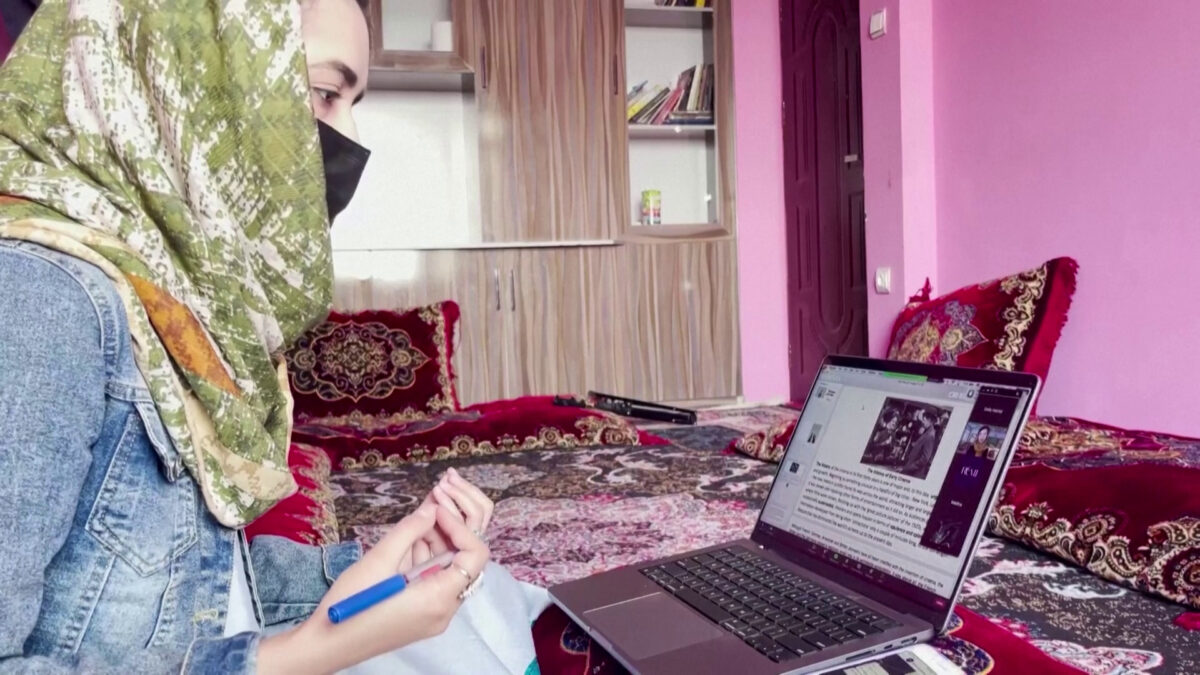Every other day, Sofia logs in from her Kabul home for an online English course run by one of a growing number of educational institutes trying to reach Afghanistan’s girls and women who can’t go to school and continue their education due to the Taliban administration’s restrictions on women.
“Actually in this situation that we are banned from going school, university or [from attending] any type of courses, it is a good opportunity for girls, for women in Afghanistan to continue their education, their studies in online courses, so this is why I want to continue my studies in online courses. This is my dream, this is my goal to finish my studying whatever happens in Afghanistan,” Sofia said.
Taliban officials, citing what they call problems including issues related to Islamic dress, have closed girls’ high schools, barred their access to universities and stopped most women from working.
Girls and women desperate to get an education have since flooded online schools like the one Sofia attends – Rumi Academy – with applications. The school says it has seen its enrollment of mostly women rise from about 50 students to more than 500 after the Taliban took over in 2021.
But many are not as fortunate as 22-year-old Sofia.
The school says they’ve had to turn away hundreds of applicants.
However, with 97 percent of the country living below the poverty line, not many can afford laptops, internet packages and other necessities for online classes.

The school can’t expand much more either because they don’t have the funds to put more teachers on the payroll and provide them with adequate online infrastructure to enable them to teach.
Virtually no one had access to the internet when the Taliban were forced from power in the weeks after the Sept. 11, 2001, attacks on the United States. But after nearly two decades of Western-led intervention and engagement with the world, 18% of the population had internet access, according to the most recent World Bank data collected before the Taliban takeover in August, 2021.
The Taliban has not moved to ban the internet and its officials are regulars on social media, which they use to make announcements. They have also allowed girls to study at home.
“It is very heartbreaking for us because we are not the only Islamic country in the world, there are many Islamic countries, where women and girls are allowed to work, allowed to go to school and go to university and they are even allowed to drive. In Afghanistan this is really heartbreaking,” Sofia said.
But like anyone else in Afghanistan who uses the internet, online students are hampered by power cuts and cripplingly slow internet speeds. Seattle-based Ookla, which compiles global internet speeds, put Afghanistan’s mobile internet as the slowest of 137 countries and its fixed internet as the second slowest of 180 countries.

“The major concern I have regarding our activity is power outages and internet connection, if one day power or the internet is completely disconnected in Afghanistan, it would create a serious problem for us,” said Anita Sherzad, Rumi’s founder who is based in Turkey.
Despite the challenges, Sofia says Afghan women have become resilient to problems after years of hardship and civil war and they are prepared to make the most of the situation, no matter how bad it is.
“We must be hopeful, because, after all night, after every sunset, there is sunshine, there is a day, this is why we must be hopeful, and we don’t lose our belief, our hopes and we must be strong in this situation,” she added.





